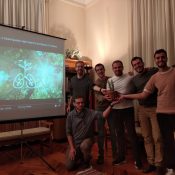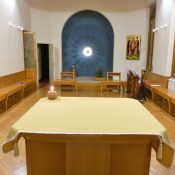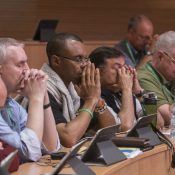We all feel the need for new possibilities. We all hope for a “second table of salvation”, we all want to find, along the way, that “hook in the middle of the sky” sung a few years ago by Claudio Baglioni. Perhaps because the human being is always a construction site, a person is always under construction. There are two Gospel parables that I particularly like to read in the light of my experience: that of the “talents” (Mt 25, 14-30) and that of the workers called to work in the vineyard at different times of the day (Mt 20, 1-16 ). In the first, Jesus reminds us of the wealth of gifts that God places in our hands throughout life. His conclusion, however, is very demanding: this treasure, this wealth of gifts, or you welcome it with love and creativity, making it fruitful, or you will lose it forever. In the other parable instead the Lord seems to remind us that there is always, in life, a new possibility, at all times, even in the most unlikely. The Father always puts at our disposal new possibilities to enhance, reorganize, make our lives fruitful. To put it in some title of Ignazio Silone, there are always for us an emergency exit, new wine and bread to satiate the thirst and hunger that emerged along the way, there is always in us a seed under the snow ready to sprout to give new impetus to the adventures of every poor Christian. God is patient and does not stop renewing to us, at every hour of our earthly day, the most important gift, the call to holiness, that is, to full happiness. The salary is assured to us in its fullness, at whatever time we have stamped the card. Even the calls to common sense, behind which our small envy or rivalry are sometimes hidden, do not count for God. He only asks us to trust him, even when, at times and in unusual circumstances, he calls us to follow a special path like the novitiate in the Society of Jesus, as it happened to me.
Massimo Sebastiani


























